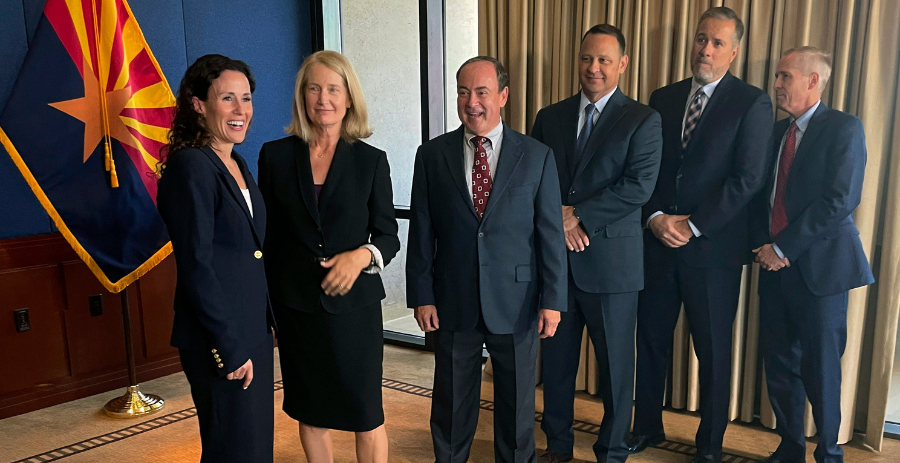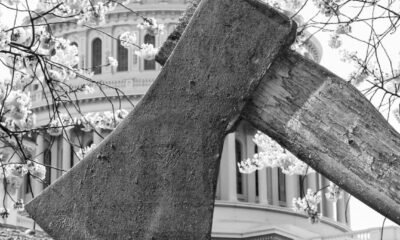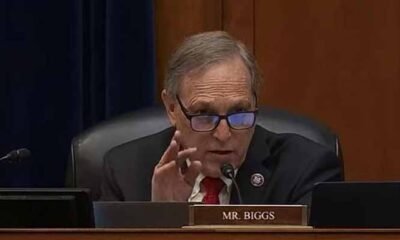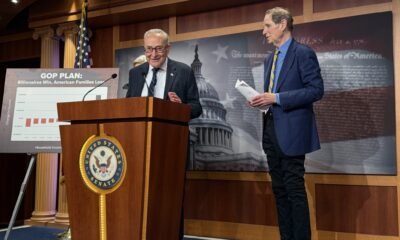andrew gould
Arizona Supreme Court Takes Center Stage in Fight to Reform Appeals Judge Elections

A pivotal case concerning the election system for Arizona’s Court of Appeals judges is under review by the state Supreme Court. This case could change how judges are elected in 2026, potentially allowing for statewide retention elections.
The challenge stems from frustrations in the Legislature regarding the existing retention election structure, which mandates judges run based on their county of residence. The Goldwater Institute, an advocate for policy change, is pushing for a system that would allow all appellate judges to be voted on statewide, arguing that the current system is unconstitutional.
Currently, judges from the Court of Appeals are elected through a complex division system. Division One includes counties such as Maricopa and Mohave, while Division Two encompasses Pima and Cochise, among others. In Division One, for example, 10 of the 19 judges are elected by Maricopa County voters, leading to concerns about unequal representation.
Attorneys for the Goldwater Institute argue that the law contradicts the state Constitution, citing an absence of explicit language regarding the electorate for intermediate appellate courts. They contend this creates an imbalance in voting power across geographic divisions, despite the Court of Appeals having statewide jurisdiction.
During oral arguments, Andrew Gould, representing the Institute, highlighted the lack of explicit electorate guidelines in the Constitution for the appellate court. He contrasted this with the provision for Superior Court judges and legislative representation, which are clearly defined.
Justice William Montgomery acknowledged the Legislature’s authority over the appellate court but questioned the strength of Gould’s arguments linking the constitutional provisions to a requirement for statewide elections. Gould maintained that any division of a statewide office into geographic districts is a constitutional overreach.
Chief Justice Ann Timmer acknowledged the merits of Gould’s policy points but pressed for clarity on the constitutional violations. Gould reiterated that the Constitution does not support dividing judges by district and emphasized its detailed provisions for other judicial offices.
Attorneys for the state argue that the judicial election system was deliberately designed to include geographic considerations, thereby providing a voice for diverse voter populations across urban and rural areas. Emma Mark, from the Solicitor General’s Office, defended this approach as a way to balance interests across the state.
The debate also touches on concerns that a statewide election could lead to dominance by larger urban counties, diluting rural voters’ influence. Mark urged the court to uphold the existing system, which was found constitutional by lower courts, including a ruling by Judge Frank Moskowitz in July. He concluded that the current structure treats similarly situated voters equally.
The Supreme Court justices have yet to issue a ruling, but the Goldwater Institute remains hopeful for a shift in the electoral landscape for appellate judges. If the Supreme Court sides against their position, advocates may return to the Legislature, though any recent attempts, like House Bill 2757, have faced obstacles, including a veto from Governor Katie Hobbs.
Jon Riches from the Goldwater Institute expressed hope for a future system that aligns with constitutional standards and serves the interests of all voters in Arizona.

















